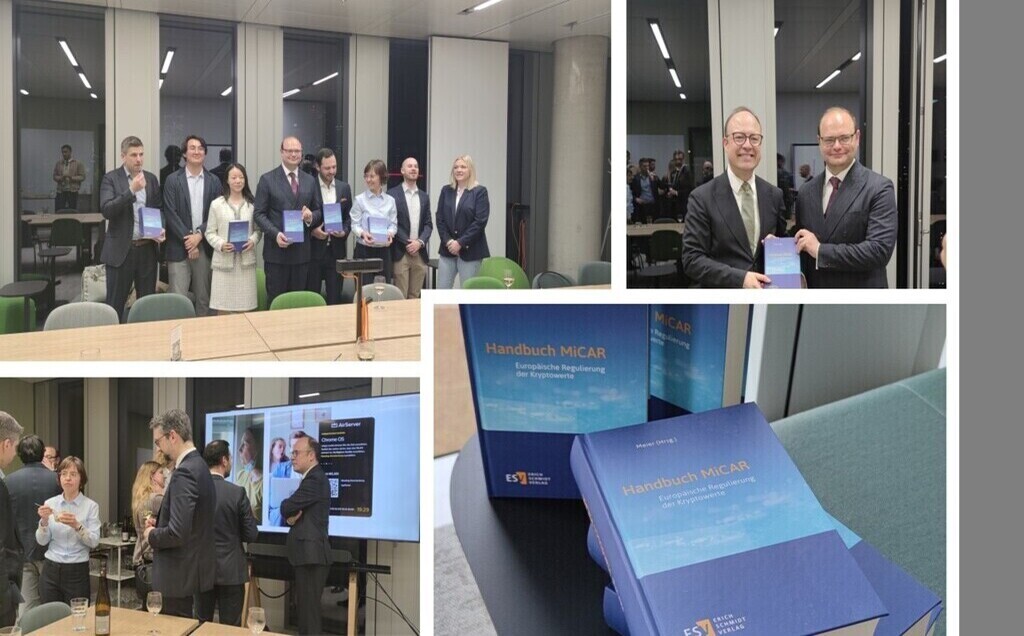The German Federal Government resolved its blockchain-strategy on 18th September 2019. The resolved version includes 44 specific measures not only concerning initiatives that are related to capital and financial markets but also the promotion of blockchain projects that have an impact on the real economy, as well as research, cooperation initiatives and the implementation of the technology in the Government’s own administrative structures. The first project is due to be realized later this year: The digital security is supposed to be introduced into German law and should render the paper document obsolete, that is currently still needed to certify securities according to German securities law. But what are the specific measures that the German capital markets can expect? Are there legal consequences for security token offerings and will the novelization make blockchain-based public offers on the capital markets easier in Germany?
DIGITAL DEBENTURE BONDS AS A KICKSTARTER
In a first step, the German Federal Government will introduce digital debenture bonds. The introduction of digital stocks and digital investment fund shares is planned for the next couple of years, after experience is gained from the introduction of digital debenture bonds. And indeed, bonds are well suited for the first phase of digitalization of the securities law, because in contrast to shares, bonds are mere contractual relationships between the emitter of the bond and the investor. Bond investors obtain contractual claims vis-à-vis the issuer such as a return claim (fixed or variable) and a repayment claim. Shares on the other hand could grant dividend claims and shareholder participation rights. Moreover, Germany already has experience when it comes to tokenized bonds that are issued to the capital markets via a BaFin-approved security token offering.
WHY IS THERE A NEED FOR DIGITALIZED DEBENTURE BONDS IF STOS ARE ALREADY POSSIBLE UNDER CURRENT LAW?
Bonds are traditionally certified in a paper document in order to make them tradable freely at the capital markets. In order to enable a rapid and efficient trade it is essential that the claims arising from the bonds are unencumbered. That means that the security in question must be free from rights and claims of former owners as e.g. a right of retention, the objection to set-off or a pledge. Acquirers must furthermore be able to rely on the fact that the purchase of a security is effective even if the seller was not the owner of the security, for example to enable short selling. According to German law an unencumbered, bona fide purchase is only possible in regard to objects. Claims are not objects in the required sense and therefore cannot be purchased bona fide. This is the reason why debenture bonds currently are embodied in paper documents. The paper document itself is an object and so subject to property law. It can therefore be purchased bona fide and unencumbered while the owner of the paper document can assert the embodied claim. Blockchain tokens on the other hand are digital assets and so not objects in the required sense. They can therefore not replace the paper document as an object. The Security Tokens which were subject to the BaFin-approved offerings earlier this year were designed to be transferred by a mere contractual assignment of the represented claims to the purchaser instead of a property transfer. A bona fide purchase of these tokens is therefore currently not possible. For a professional exchange trading, where securities sometimes change hands in a matter of milliseconds e.g. through high frequent electronic trading,, the legal possibility of an unencumbered, bona fide purchase is essentially required. Therefore, the next level of digitalization of the capital markets must be the introduction of a reliable legal framework of an unencumbered, bona fide purchase of tokenized bonds. The German Federal Government wants to do that by introducing the digitalized debenture bond.
WHAT DOES THE INTRODUCTION OF DIGITALIZED DEBENTURE BONDS MEAN FOR EMITTERS AND SECURITY TOKEN OFFERINGS?
The announced introduction of digital debenture bonds might be the breakthrough security tokens need in order to be potentially available for trade on the secondary markets. If the unencumbered bona fide acquisition of security tokens becomes legally possible, the transfer of security tokens would no longer only work on basis of the contractual assignment of the represented claims but could instead be performed by a simple transfer of the tokens from the seller to the purchaser. Emitters of security tokens would face considerably less legal uncertainty with regards to the legal fate of their tokenized bonds and could offer their investors the prospect of exchange trading after the initial token sale. All of this under the condition that the German legislator properly implements digital debenture bonds into German securities law.
Attorney Lutz Auffenberg, LL.M. (London)
subscribe to Newsletter






